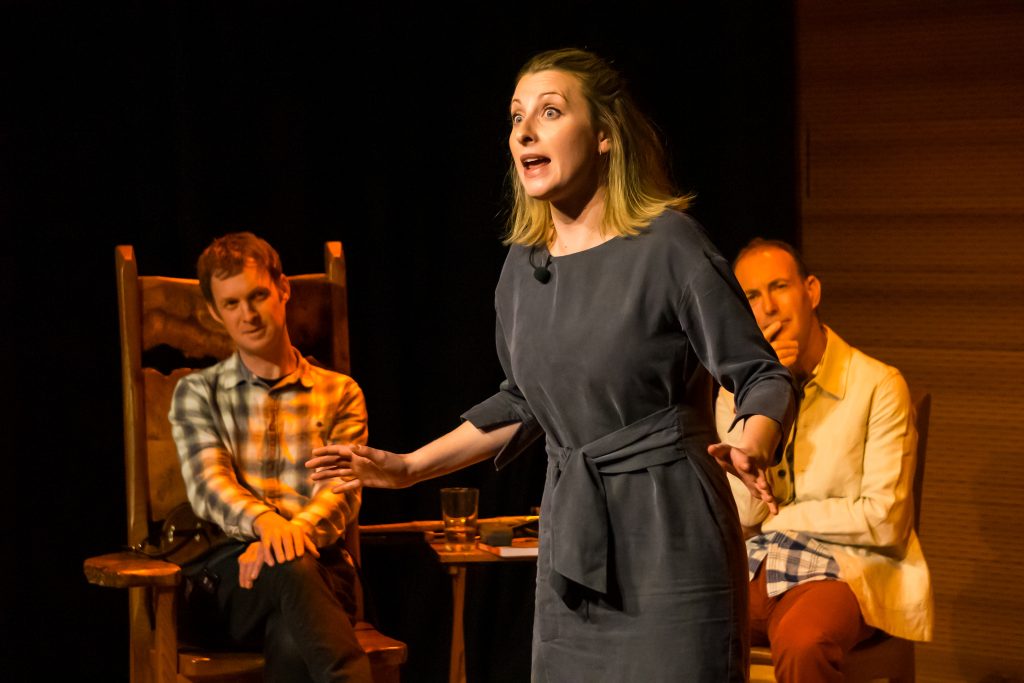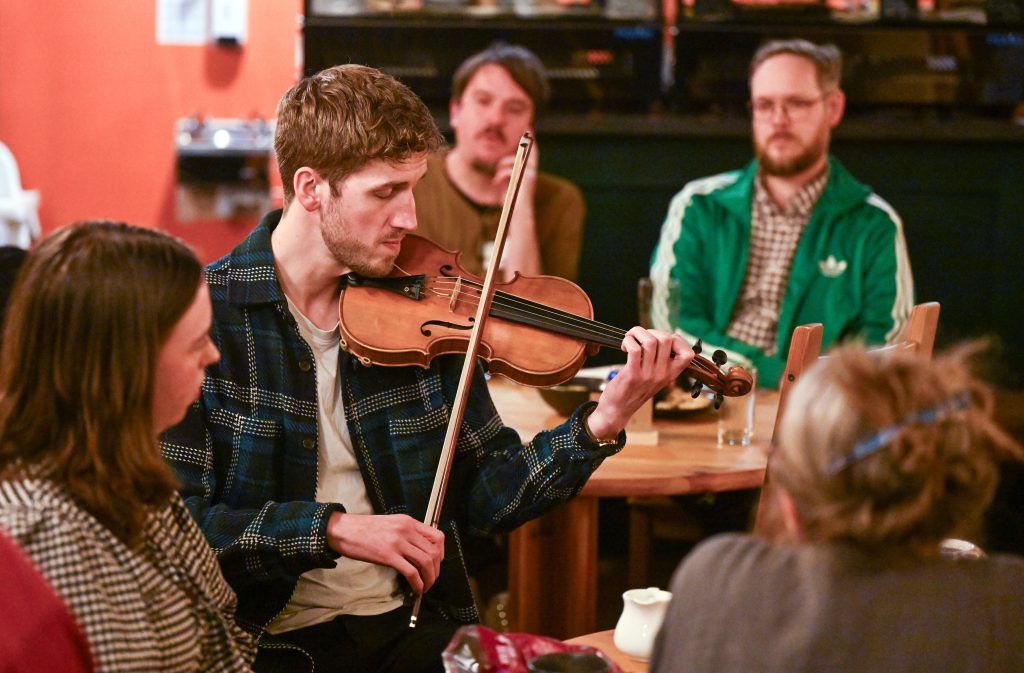Birgit Ellinghaus is Director of Alba KULTUR, an organisation based in Cologne, Germany which specialises in global music cultures ranging from classical, non-Western music and orally transmitted traditional music, to contemporary fusion and crossover projects, that all express the concept of cultural diversity in a globalised world.
Birgit was a speaker at the 5th European Folk Network Conference, Kaustinen, Finland, 24 September, 2024.
“We spoke a lot about Intangible Cultural Heritage (ICH), yesterday and today, mainly in rural, peaceful territories: the Nordic Countries, Scotland. We saw all these great examples. And today the majority of the European population lives in urban regions of very pluralistic societies due to migration of many different kinds: we have “recruited skill workers” who came and who are still coming to Europe, we have blue card holders, we have international students, we have displaced people from war zones or, in the future, maybe because of climate change, refugees coming to the Nordic zones, because they can’t survive any more on the small islands in the Pacific or the Indian Ocean. So, they all have different cultural identities, they have different kind of food, languages, music, instruments, rituals, religions, understanding of the universe and nature. This is the cultural baggage they carry along here to this European territory.
So, I’m going to start with some questions about the term “new Europeans”. Are there new Europeans and old Europeans? And who are the old Europeans and could we really use this term? Do we really have a European identity? Would the communities from the rural North identify themselves first as Europeans? Or do they have their local identity and the term European is put as a political identity on top? And do we want really ask to migrants from non-European territories to assimilate in Europe and to have an European identity? And in this case, what kind of European culture do we ask from them? And do we really want to name them “new Europeans” and ignore and reject by this attitude their own roots in other (non-European) cultures? Or is there a new grown identity by a community of people living in urban pluralistic societies in Europe that we could name, now or in the future, European? All these are very dynamic and multifaceted questions. I would just pledge to avoid in this debate Eurocentric views or post-colonial wording and classification.
And all this is in a broader context which has given us, not only the convention on ICH, but also the UNESCO Convention on the Protection and Promotion of the Diversity of Cultural Expressions, which stands for the diversity of individuals and their rights to be recognized equally through their cultural expression and to allow their cultural expressions and identity to flourish and develop freely.
This is why we call the UNESCO Convention of Cultural Diversity the “magna carta for contemporary creation”. This is a convention, which has a different position within all the other UNESCO conventions, because only this convention has a binding power over the ratifying states. All states who have signed up with the UNESCO Convention for Cultural Diversity have to implement this convention and all its rules and knowledge and concepts into their society, into our society and into intergovernmental relationships with other countries. Europe has ratified as an entire network of states and each state within Europe has ratified this convention too [Ed: not the UK]. We have to see that the ICH convention is nice to have, but it has no legal binding power. The UNESCO Convention for Cultural Diversity has this legal binding power. And through this different concept we can say both conventions are sister conventions, and the ICH convention is carried through the Convention on Cultural Diversity into a more powerful meaning, because, through the convention of cultural diversity, the ICH convention gets the relevance of being implemented within the concept of cultural diversity.
This is the concept which gives us access to the cultures from migrants of all kinds, which should be included on an equal basis into our cultural political debate and into our actions. Both conventions are commitments to artistic freedom, for fair working conditions of artists and creatives and other cultural workers, because around each artist you have such activists and many of you reading this are activists as well.
And this diversity convention is a commitment to pay particular attention to vulnerable and marginalised people in all territories. It highlights the systematic inequalities and imbalances in cultural exchange that continue to exist at a local level, at regional, national and global levels. So, this is a tool, the cultural diversity convention, which makes us act in our relationships, and through these relationships we express what we mean with communities.
And I just would like to finish to give you some brand-new information, because last week we all got a new tool to help us act in this diverse cultural landscape in Europe: it’s the Fair Culture Charter, which has been worked out after the World Conference on Cultural Policies and Sustainable Development MONDIACULT in Mexico one and a half years ago by a number of national UNESCO committees from Africa, Asia, Europe, Latin America. All together it was a really collective process that drew down and squeezed some rules, specifically for the cultural sector, from these UNESCO Conventions. But it also brought in international laws, such as those concerned with the status of artists, something which had been recommended already in 1980, by the UN’s Human Rights Declaration, by some UN-approved economic, social and cultural rights laws, and, lately, the Sustainable Development Goals.
This Fair Culture Charter is the complete application of all these diverse tools for the cultural sector and it has been broken down to eight principles. I won’t name them all, but they include: access to diverse culture expressions and resources, non-discrimination and gender equality, local development… These are principles of this Charter which gives us now really power to act. And I call to all of you to get on the internet and the website www.fair-culture.org and to countersign this Charter and to spread the word. Everybody, individuals and organizations, can sign this Charter and this could be a very powerful tool for us, similar to what we know already these many years from the fair-trade movement. So, we would like to start a fair-culture movement with this, which helps to implement our mission in the field of music.”







